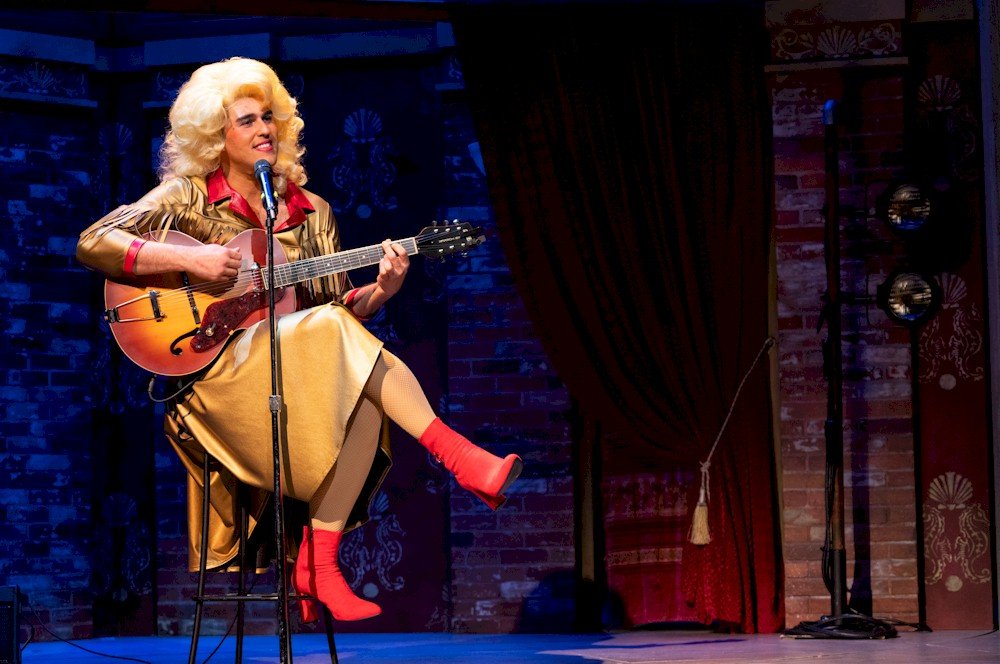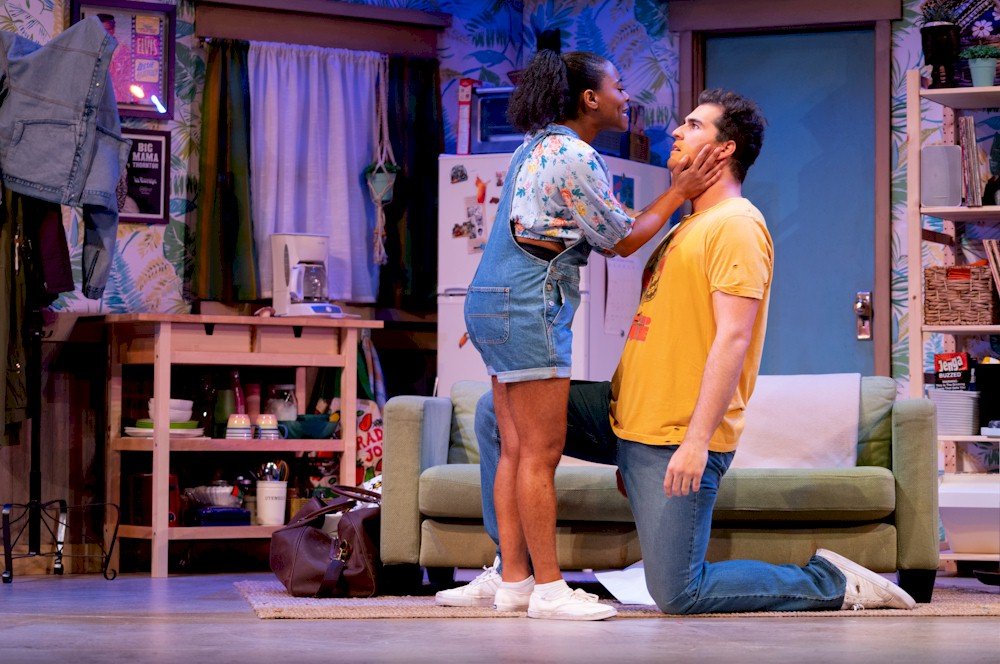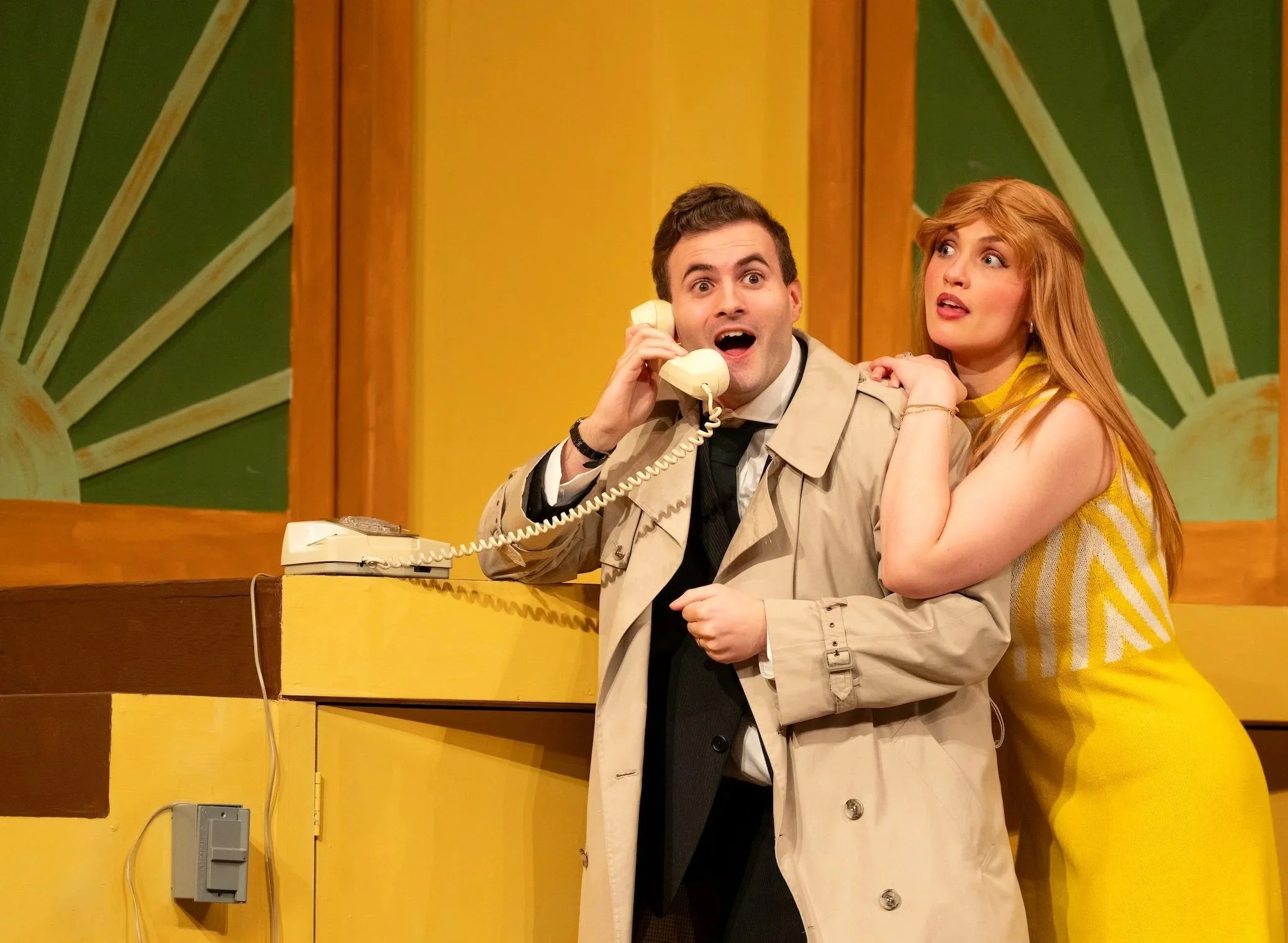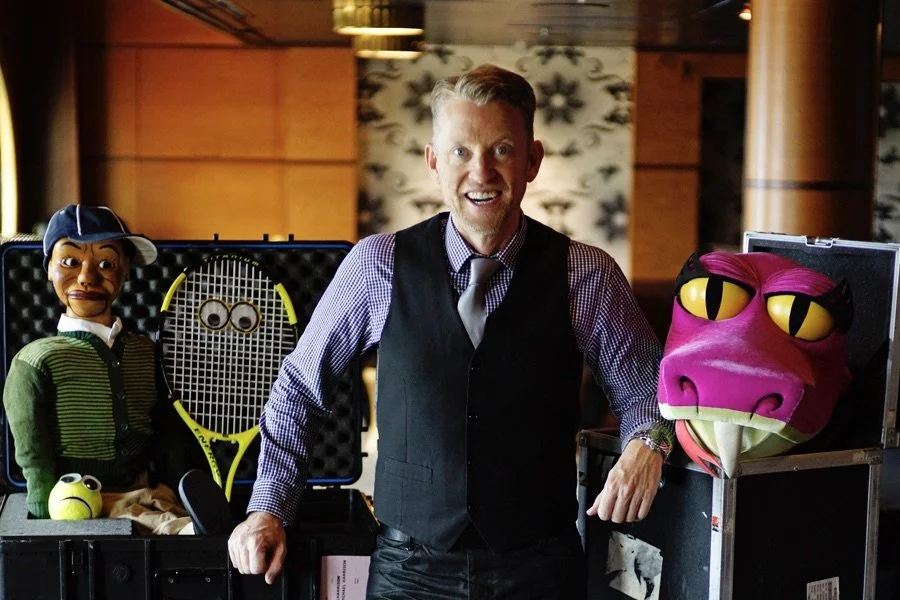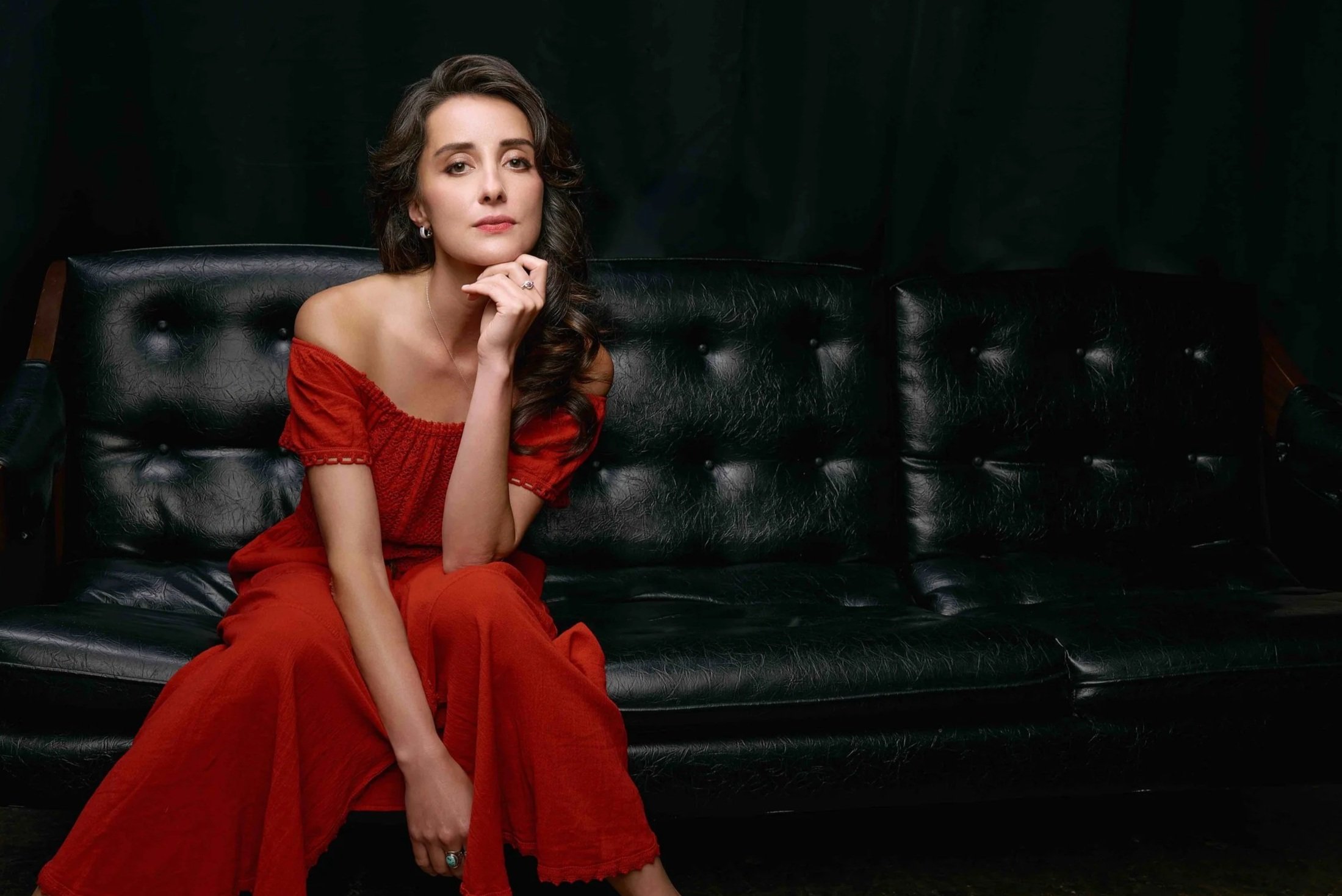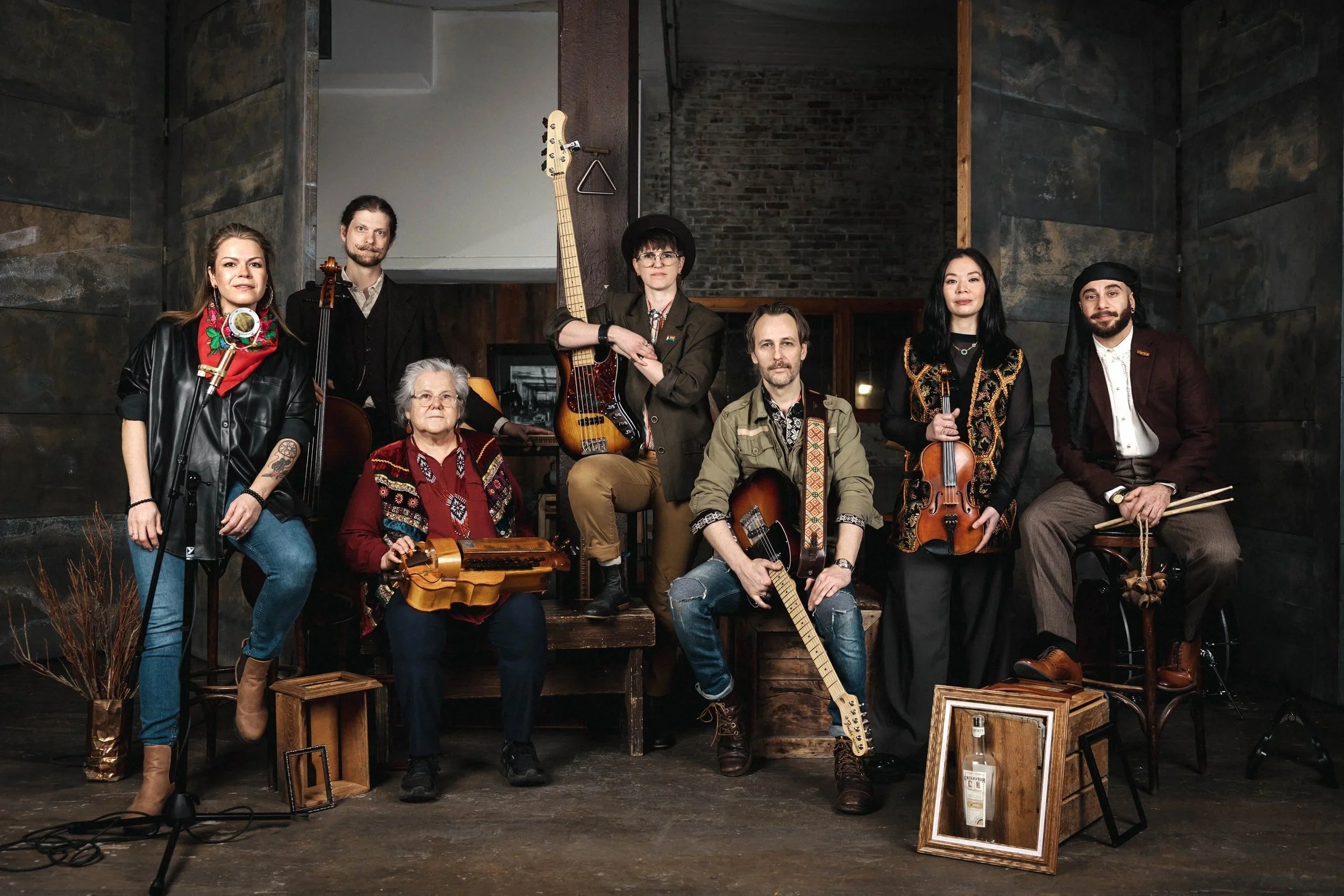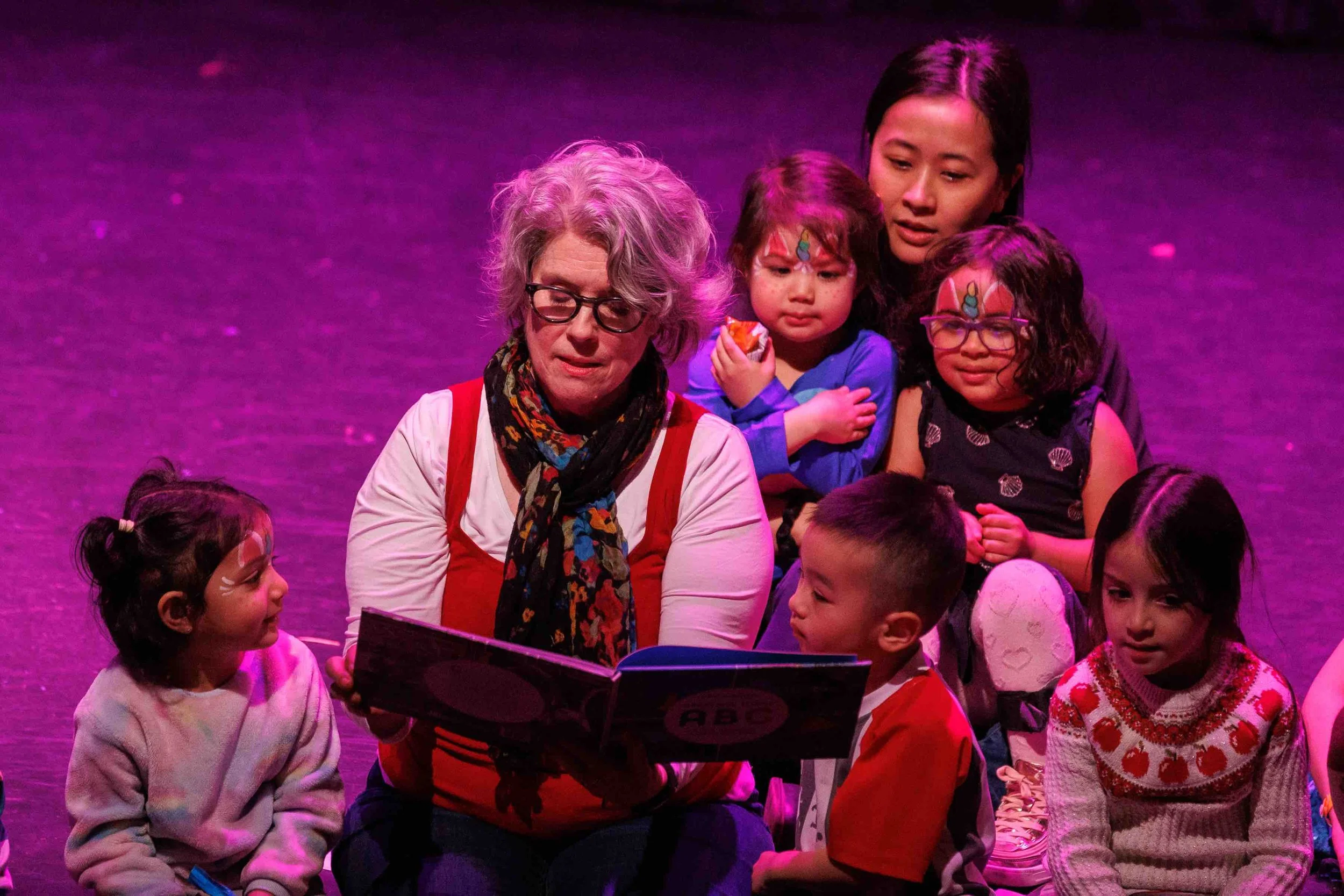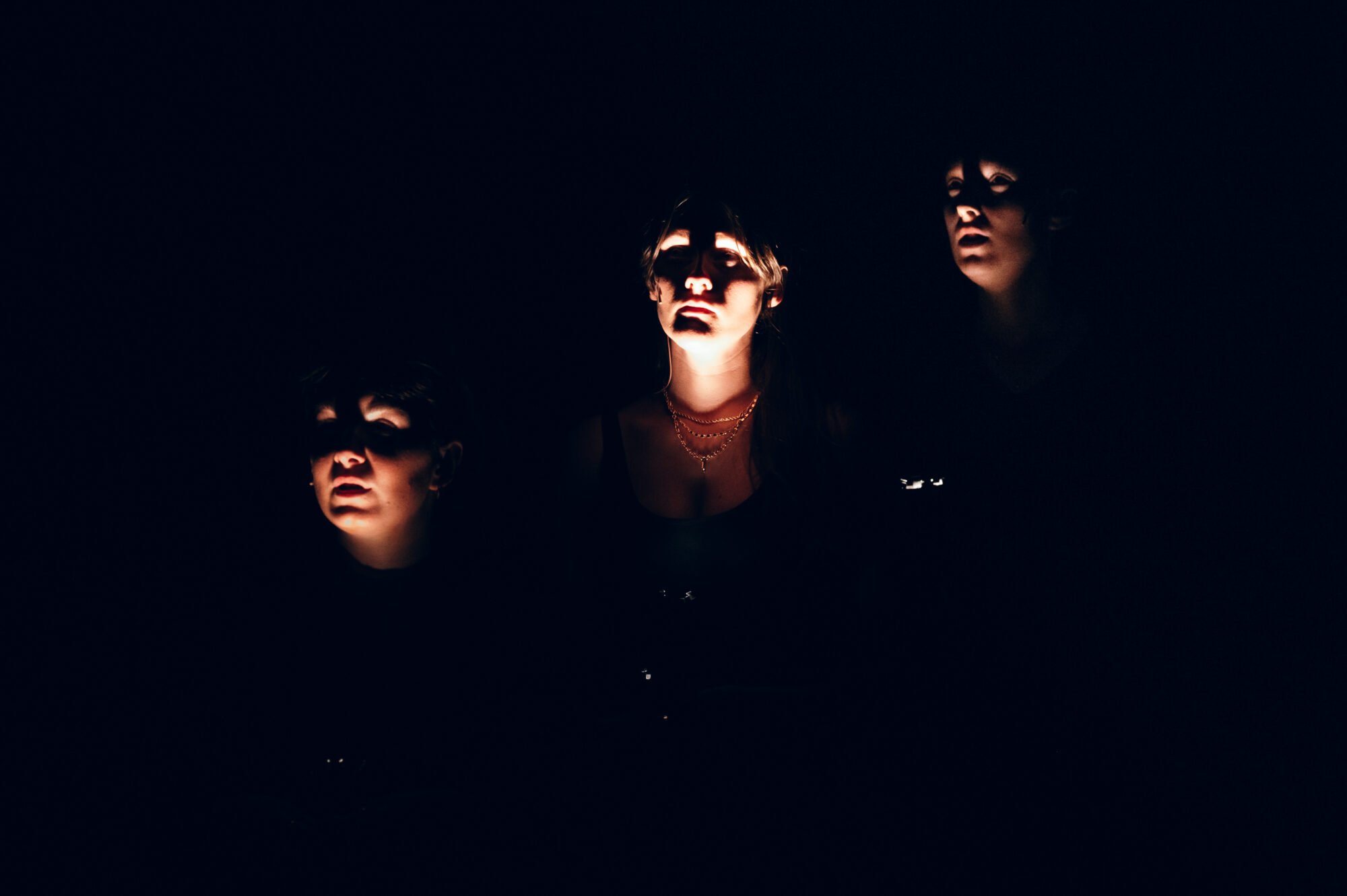Theatre review: The Legend of Georgia McBride tells a timely story with sensitivity and sass
Under the glitter, “a raised fist inside a sequinned glove” at the Stanley
Jacob Woike in The Legend of Georgia McBride. Photo by Moonrider Productions
Arts Club Theatre presents The Legend of Georgia McBride at the Stanley Industrial Alliance Stage to May 21
AT THE OUTSET, The Legend of Georgia McBride has the visage of being a fun, sparkling, drag-themed play. But every drag performance has a meaningful personal story under the glitter—and the relevance of drag is increasing daily as political and societal forces threaten to oust it.
The Legend of Georgia McBride has the wit, charm, and well-crafted storytelling that make great theatre. Beyond that, it’s an educational experience in the world of drag, LGBTQ+ lived experiences, and societal perspectives. And in the current state of anti-LGBTQ+, anti-trans, and anti-drag movements, The Legend of Georgia McBride is an important story to tell—and it does so with boldness, sensitivity, and sass.
Written by Matthew López, the play begins with young Elvis impersonator Casey (Jacob Woike) struggling to attract audiences to Cleo’s, the Florida dive bar he performs at. The shortcomings of the bar’s success isn’t a reflection of Casey’s talent—he’s an excellent performer, full of charm, energy, and passion. Regardless, when the bar’s owner Eddie (Greg Armstrong-Morris) cuts Casey’s act and replaces him with a duo of B-list drag queens, Miss Tracy Mills (Ron Kennell) and Rexy (Karthik Kadam), Casey is forced to hang up his Elvis jumpsuit. Needing to provide for his wife and expectant child, Casey stays on as a bartender. When adversity strikes Rexy, Casey is faced with two options: see the bar’s business plunge and kiss his job goodbye; or quickly step into heels and make his drag debut.
What follows is a highly entertaining, comedic, and sweet backstage look into the world of drag. As one would expect, it comes with saucy drag routines, performed brilliantly by Woike and Kennell, and costumes and heels that get more lavish with each number, thanks to costume designer Jessica Oostergo. This is drag and theatre combined, a nod to both RuPaul’s Drag Race and Gypsy. Miss Tracy is both RuPaul and Mamma Rose, guiding drag daughter Casey with tenderness and tough love. Instead of shouting “Sing out Louise” from the wings, Miss Tracy shouts “Sing Bitch!”
In Gypsy, we see Louise’s transformation from vaudeville reject to burlesque star in a montage that offers a parade of routine after routine, showing her develop and get more fabulous each time. The Legend of Georgia McBride cleverly leans into this idea, as Eddie continually introduces Casey, now using the drag name of Georgia McBride, onstage for performances that commemorate celebrations that span the seasons: Valentine’s Day, St. Patrick’s Day, Memorial Day, and the 4th of July. Georgia performs to gay icons such as Edith Piaf and Kelly Clarkson. As Georgia’s act increasingly flourishes, so does the production quality, with glitzier lighting and set pieces, and at one point Eddie even comes running onstage with a wind blower.
However, this escape into fun drag world only lasts so long before we’re reminded that drag comes with challenging issues, which include misconceptions, fear, and hate. In navigating through all of this, Woike is a joy to watch as Casey, who’s personable, goofy, and flawed, and proves to be a kind-hearted hero/heroine to root for, both in and out of his heels. He also uses movement wonderfully to show his character development—from Georgia’s first stumbles in heels to her confident struts and ownership of the stage in the tongue-in-cheek use of Shania Twain’s “Man! I Feel Like A Woman!”
Monice Peter and Jacob Woike. Photo by Moonrider Productions
As drag mother Miss Tracy, Kennell is a striking presence, conjuring shades of old Hollywood and Broadway stars such as Bette Davis and Ethel Merman with his vocal inflections, mannerisms and command of the stage. He's stern, but always tender at the same time, even stopping to give Casey a congratulatory hug for giving shade for the first time.
As Jo, Monice Peter hits the right balance between practicality, concern, and likability. The relationship between Peter and Woike’s characters is affectionate and endearing, and helps drive the story’s believability factor.
Armstrong-Morris is a hoot to watch as Cleo’s owner Eddie, doing everything he can to make the bar’s entertainment a success, whether he’s uncomfortably delivering risqué intros, or scurrying onstage as a backup dancer when needed. Kadam does adept double duty as Casey and Jo’s landlord Jason, where he emulates straight bro vibes, and, on the other side of the spectrum, as troubled drag queen Rex. It’s Rex who reminds us that drag is more than lashes, heels, and paying tribute to iconic divas—it also represents the history of LGBTQ+ repression and the fight to confidently live as one’s true self. Looking right at the audience, Kadam delivers a soliloquy that’s hauntingly powerful.
Under the direction of Jamie King, the story flows wonderfully, thanks in part to the inventive use of set designer Brian Ball’s revolving stage. Woike’s quick changes are done right before our eyes. And if you’ve never seen a man transform into a drag queen in record time, here’s your chance. Every element of this production helps to tell the story, including little details that make Cleo’s look disjointed at the start, such as burned out lights in the neon sign, to the bar’s transformation into a slick, theatrical venue.
The spectacular finale number may leave you humming and dancing out of the Stanley. But the show will also remind you of the importance and relevance of the story amid continued backlash against the queer community. As Rexy says in the show, “Drag is a protest…a raised fist inside a sequined glove."


